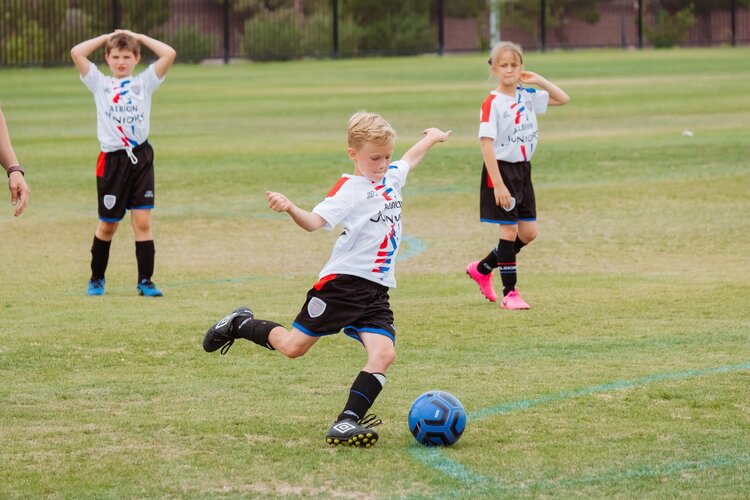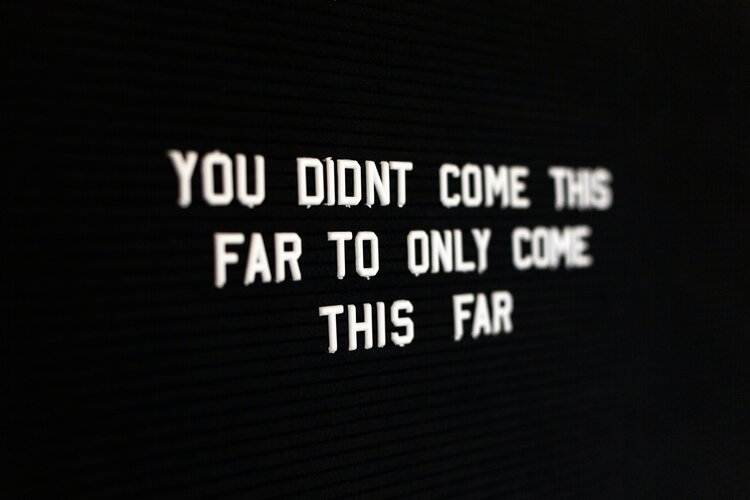Three Tips for Parents of Young Soccer Players
As parents I believe that we all want the best for our children, we want them to be successful in whatever they choose to pursue. We love to see them smile, be happy and while enjoying life. Kids love to play, they love to explore, to learn, and be creative. Most of us understand this, but when it comes to sports let’s admit it our competitive nature often takes over and despite our best intentions we sometimes forget what is really important and what is really the best for our kids.
As a soccer parent we are often told that we need to be at a certain club by a certain age, that if we aren’t having our kids specialize by a certain age it is too late. We worry about our kids getting passed by so push them to be on the “best” or “elite” team at earlier and earlier ages. The sporting world knows this too, and there is big money in getting you to believe in it. That is why youth sports is a multi-billion dollar industry. In fact according to statista.com the youth sports market in the United States alone is a $19.2 Billion industry. It is expected to reach $77.6 Billion by 2026 (see more here). More specialization, more private training, more “elite” youth clubs means more travel, more fees, more tournaments, more facilities, more sponsors, and more cash to those running these organizations. So what should parents really be concerned with? How do we give our kids the best chance at success without falling behind or through the cracks? How do we help our kids without becoming the crazy parents who force our kids to train all the time, have private instructors for everything and jump from club to club to make sure our kid plays the position we think is best and on the so called “elite” team?
All soccer parents, and sports parents alike want to “get it right,” we want to support our kids and do whatever we can to help them. So here are 3 tips for parents of children just getting started in the world of soccer.
KEEP THE BALL VS. KICK THE BALL
Stop telling your kids to kick it or pass it. Teach them to keep it, to have fun with the ball. I have been fortunate to have been able to work with soccer players of all ages and abilities for the better part of the last two decades including children as young as 2 years old all the way to professional players who have played at the highest levels of global soccer. I also am lucky to be the father of two boys myself who both enjoy playing the game of soccer. One of the most common things I see with young parents of young children (2-10) who want their kids to play soccer is encouraging their children to kick the ball, or pass it. To kick it in the goal so we can all celebrate. We’ve all cheered as our little one kicked a ball. It’s not that kicking the ball is bad, but it’s not the best thing we can do for our kids. In reality it’s not really a great habit for life either. My best tip to parents of young would be soccer players is that if you want your child to really love the game, encourage them to keep the ball, to love it, to want it all the time, to protect it, not kick it away.
To add a little context, think about the best players in the world, the ones that we all love to see, the ones we watch in highlights, the ones that club’s pay huge money to and sponsors can’t wait to have them represent their brands. What do they have in common? They can all dribble, they want the ball, and we love to see them be creative with the ball at their feet. At a young age, teaching our kids to manipulate the ball, to control it, to have fun with it at their feet and fall in love with the ball is the number one thing we can do to help give our kids a leg up on everyone else. Often these players are the best passers as well but first they were dribblers who fell in love with the ball. As they grew up they learned to share, and importantly when to share.
Another angle just in case you don’t believe me. Think about your child’s favorite toy. Is it the one they bring everywhere with them? Is it the one they can’t sleep without? The one that if anyone takes it they lose their mind? I’m guessing the answer is yes right? Would you spend every minute telling them to kick it to someone else? I don’t think so. They love that toy and bring it everywhere. It’s involved in everything and they come up with all sorts of creative ways to use that toy. That’s what we want them to do with the ball. We want them to fall in love.
So how do you do this? My favorite game for parents of toddlers is one that encourages kids to be creative, use their imagination and teaches them to protect the ball. It’s as simple as pretending you are a monster or bear etc. and trying to steal the ball from your child. Encourage them to put their foot on the ball and do a pull back roll it behind them and protect the ball. All a parent has to do is say “how did you do that” afterwards, or “hey I wanted that ball” in a playful manner and you are on your way to encouraging them to protect the ball, vs. kick it. For older kids play a game of nutmeg, or panna. For those asking what that is, it is when a player dribbles the ball and puts it through the legs of their opponent. It takes skill, creativity to do, and is a lot of fun. Play with your kids, and see who can “meg” the other one, first to 3 wins. It’s a staple in my house and has been since the kids were very young, it actually was what we did every night before bed when they were really young.
ENCOURAGE VS. PRAISE
As parents we are often either our kids biggest supporter, or their biggest critic. Admit it you are typically one or the other, and sometimes both. Either way my second tip applies. In life in general we are all typically striving to do the best we can. Those that are most successful often have the most productive daily habits, or systems, routines that they follow that help them achieve their goals and consistently win over time. To form those habits I’m convinced that the best thing we can do for our kids is to encourage them, not praise them. Here’s an example. Currently through HappyFeet and the Charlotte Soccer Factory I coach every Saturday about 40+ kids myself. My HappyFeet group is typically children ages 4 to 5 (although we have kids as young as 2), and my Charlotte Soccer Factory group are primarily 6 and 7 year olds. Both groups are encouraged at every opportunity to try new skills. We encourage them constantly and when they try the move we celebrate. The difference however is that we spend a lot more time on encouraging kids to be brave, to try, to take a chance, to take a risk than we do celebrating or praising when they do. Our praise is often just more encouragement to try it again, to try it faster, more often, or even try a new skill. Once we know the kids can do it we are encouraging them to take on the next challenge. The difference between encouragement and praise is an important one.
When we praise it is about the result, it creates a dependency on external feedback. It might look like your child looking over to you on the sidelines after every touch to see if they “did it right.” We all like praise, we love to hear “Great job.” It makes us feel good. Most people like it. The difference though is that “encouragement” makes us feel just as good and teaches us to focus on the process, the effort, the skills. Rather than saying “Great Job” it might sound like “I noticed you really working hard on your scissors today or I saw you try your scissors a bunch of times during your game.” Notice the difference, it’s subtle, but it’s teaching our kids to continue to work, to persevere, to keep trying.
Educators have started to learn the power of this in the classroom too, so why shouldn’t we use it as parents, as coaches. In an article in positive discipline.com they give these examples:
-
You figured out how to do that
-
You did it
-
You are learning how to tie those shoelaces. Last week you had trouble getting them tied, but this week you did it without a problem
-
Tell me how you did it
-
I see that you are working hard.
-
This is hard for you but you are sticking with it
-
You searched your mind and came up with something new
The idea is not that praise is bad or that we should avoid it at all cost. This tip is really about the differences between praise and encouragement and how a subtle change in words and a focus on encouragement can make a world of difference in your kids development on and off the soccer field.
THERE ARE MORE WAYS TO BE SUCCESSFUL THAN SCORING A GOAL, OR WINNING THE GAME
I’ve probably told this to parents a million times, but I’m convinced that the two most common post game questions that parents, grandparents, friends and family ask a young soccer player are: “Did you win?” and “Did you score a goal?”
I’m guilty of saying it too, but it still makes me cringe every time I hear these questions asked. From my perspective when we use them we create and build a culture where kids think the only way they can have success is to either score, or win the game. That means that almost every game the majority of the players will fail, and have no success. This can’t be good for anyone. In our first two tips we talked about protecting the ball, trying new skills, and encouraging players. So what if after each game, or during each game our children looked at the game by how many runs they made, how many times they stole the ball from the other team, how many skills they attempted, how many shots they made, how many times they tried something they have been practicing, how many good passes they made, etc. There are endless amounts of opportunities for success throughout a game. If we start to encourage good habits, and positive actions that over time will lead to success then we are setting our kids up to win for life. To have success on and off the field for their entire lives.
Putting all the tips together if we only “praise” our kids for scoring a goal, or if their teams win we aren’t really doing anything to help them learn how to solve problems, to understand what it takes to be successful, to explore, to create. How often does one player do all the work and another happens to get the last touch. If we only “praise” the player who “scored” we are doing both the creative player, and the goal scorer a disservice. We are likely giving the goal scorer far too much credit, and we are teaching the creative player who is doing things that will help them in the long run that only the person who scores matters, potentially killing the creativity they have shown, and removing multiple options for a problem because now only the result matters.
Thanks for reading
C
If you would like more ideas to help your kids or have more questions about the development process and road map for soccer players send me a note at [email protected], or follow along on social media either HappyFeetCLT on Instagram and Facebook, or CharlotteSoccerFactory on Instagram and Facebook. You can also check out our Charlotte Soccer Factory Blog for more ideas for soccer players, parents and coaches.



